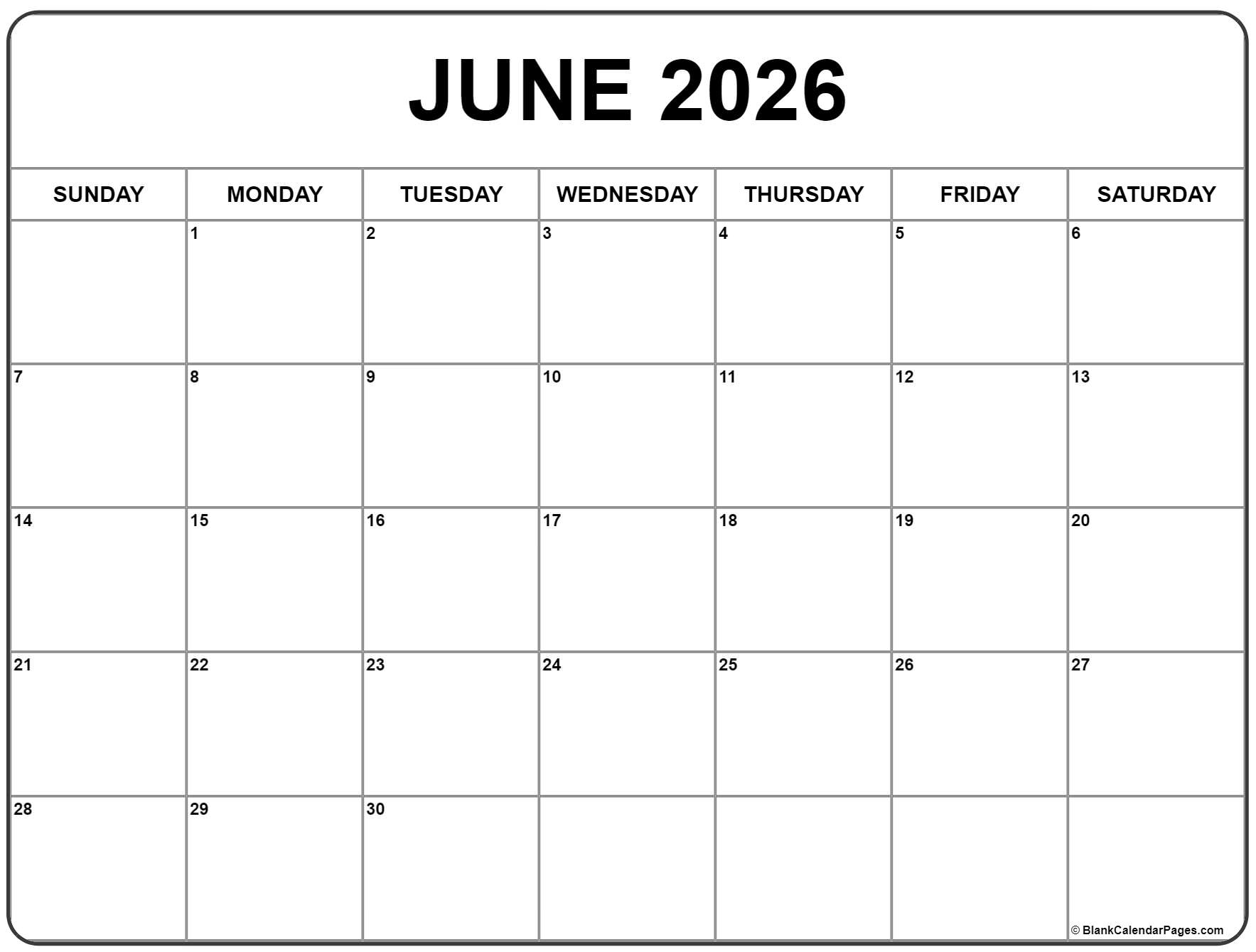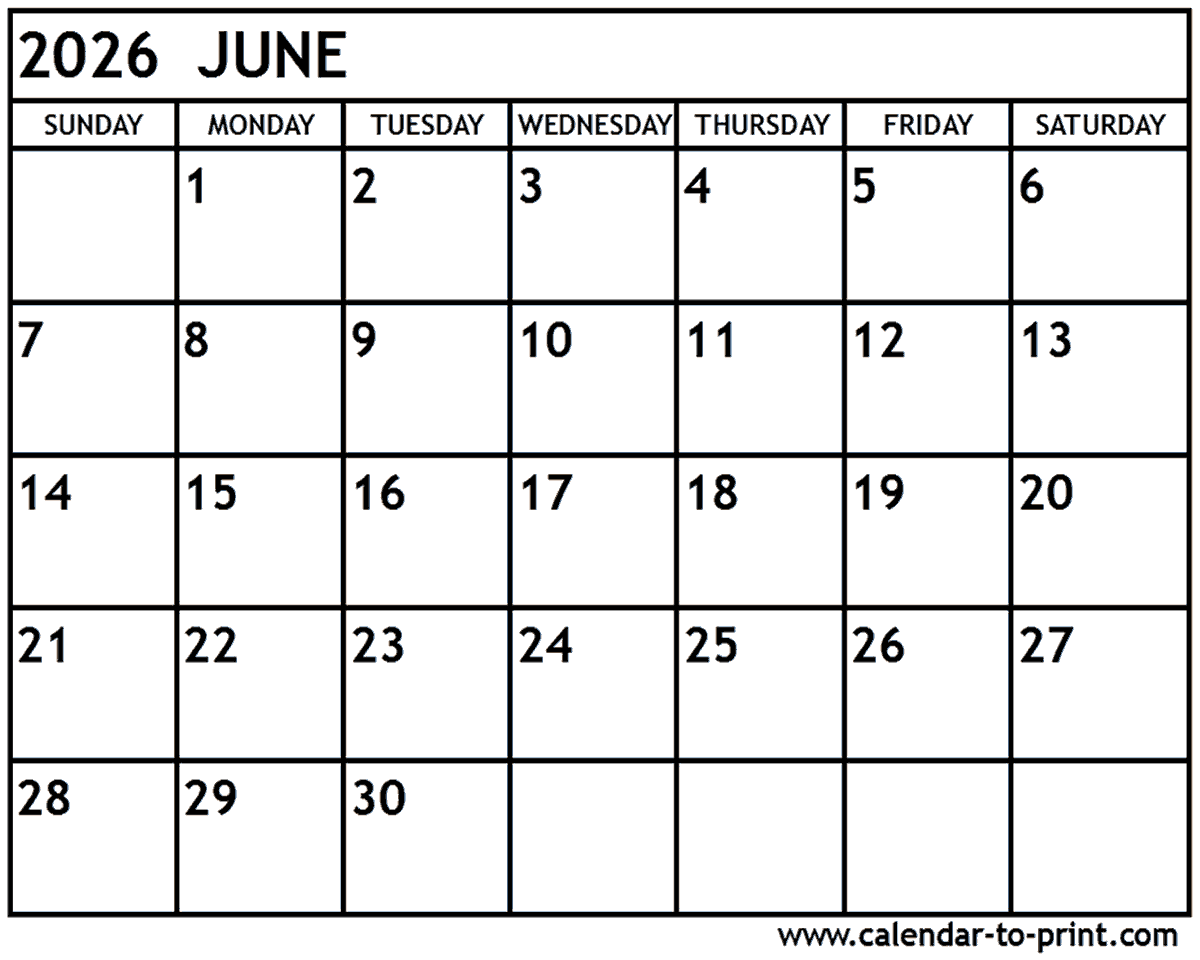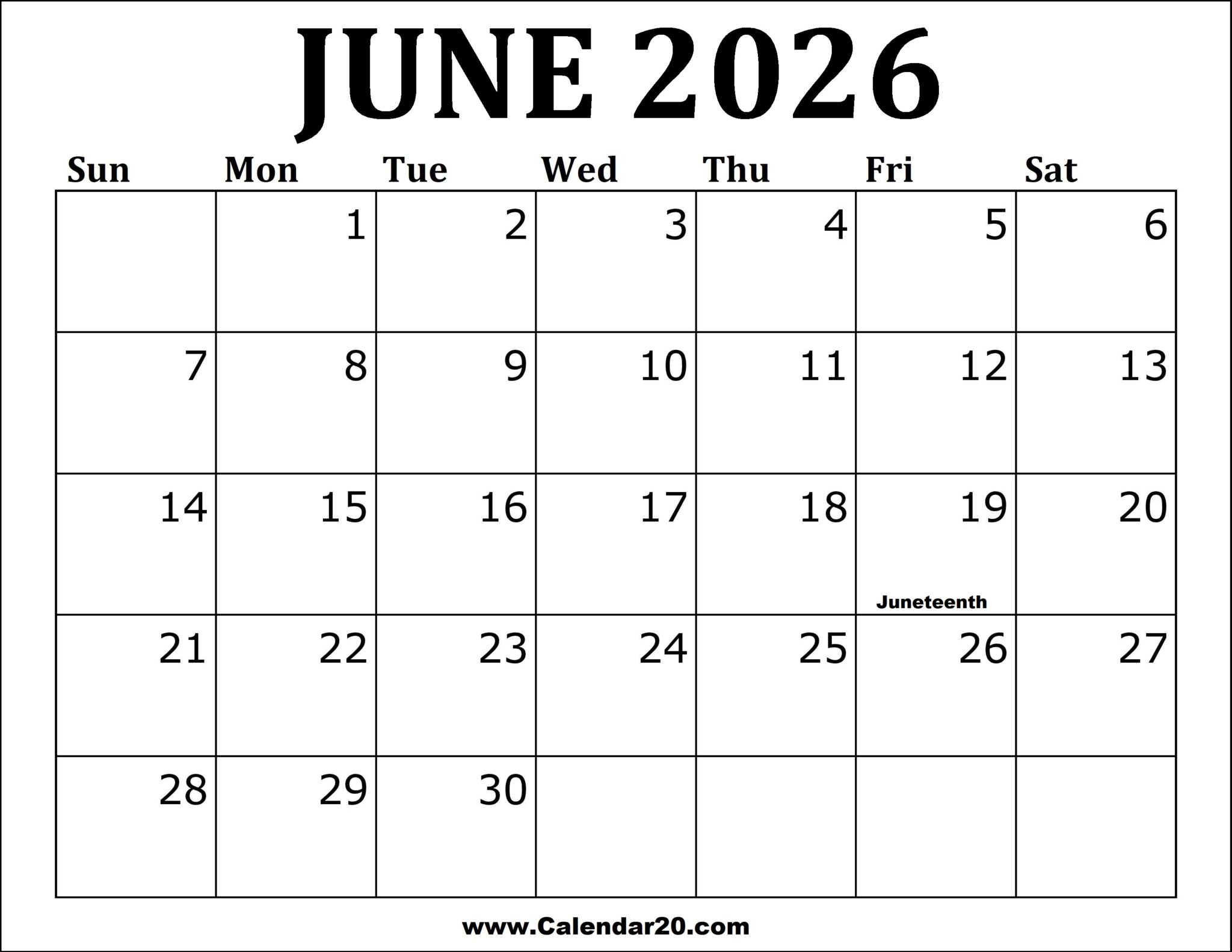
Introduction
june 2026 calendar wiki represents a significant subject within its field, encompassing a range of practices, traditions, or applications that shape daily life and broader cultural or professional landscapes. Understanding june 2026 calendar wiki provides clarity about its background, its present relevance, and the way it continues to influence various aspects of society. This comprehensive approach to a specific monthly calendar, particularly when framed through the lens of a "wiki" or a highly detailed, accessible information resource, highlights the profound impact of structured time management and comprehensive data dissemination. The concept extends beyond a mere list of dates, embodying the collective knowledge and practical utility derived from meticulously organized temporal information.
Definition and Origin of june 2026 calendar wiki
The phrase "june 2026 calendar wiki" refers to the comprehensive, detailed, and often collaboratively assembled body of information pertaining to the month of June in the year 2026. While not a physical entity, it conceptualizes an ideal repository of all relevant temporal data for that specific month, akin to a Wikipedia page dedicated to it. This encompasses not only the sequence of days, weeks, and public holidays but also extends to astronomical events, significant cultural observances, historical anniversaries, and practical planning considerations pertinent to that period. The "wiki" aspect emphasizes accessibility, depth, and the potential for collective input, ensuring that the information is robust, accurate, and useful to a broad audience.
The origin of calendar systems themselves dates back millennia, rooted in humanity’s fundamental need to track time, predict seasonal changes, and organize social and religious activities. Ancient civilizations, from the Egyptians and Babylonians to the Mayans and Romans, developed intricate systems based on celestial observations. The Gregorian calendar, adopted widely today, emerged in 1582 as a reform of the Julian calendar, designed to correct discrepancies in the calculation of the solar year. This system provides the foundational structure for June 2026.
The "wiki" dimension, however, is a modern construct, emerging with the advent of the internet and collaborative information platforms. It signifies a departure from static, authoritative sources towards dynamic, interconnected knowledge bases. Applied to a specific month like June 2026, this concept implies an aggregated resource that synthesizes data from various official calendars, astronomical charts, cultural databases, and even user-contributed insights regarding local events or planning tips. Such a resource, whether explicitly named a "wiki" or simply embodying its principles, aims to provide an exhaustive and easily navigable overview of the month. It moves beyond a simple date grid to offer context, implications, and actionable intelligence for individuals and organizations.
Importance of june 2026 calendar wiki Today
The comprehensive understanding represented by a "june 2026 calendar wiki" holds significant importance in contemporary society, impacting various facets of personal, professional, and cultural life. In an increasingly complex and interconnected world, precise temporal organization is not merely a convenience but a necessity for efficiency, coordination, and strategic planning.
For individuals, a detailed understanding of June 2026 allows for effective personal scheduling, vacation planning, and awareness of significant life events. It helps in anticipating public holidays, school breaks, or important personal anniversaries, enabling proactive arrangements. Without such clarity, individuals risk missed appointments, scheduling conflicts, and general disorganization, which can lead to stress and reduced productivity.
Professionally, the insights derived from a detailed June 2026 calendar are critical for businesses, educational institutions, and governmental bodies. Companies rely on accurate calendrical data for project management, deadline setting, resource allocation, and market analysis. For instance, understanding the distribution of weekdays, weekends, and holidays within June 2026 is vital for forecasting sales, planning marketing campaigns, and scheduling staff. Educational institutions use it for academic year planning, exam schedules, and extracurricular activities. Government agencies depend on it for legislative sessions, public service announcements, and the coordination of national or local events.
Culturally, such a resource helps in preserving and promoting traditions. June often hosts numerous cultural festivals, religious observances, and national celebrations across different regions. A comprehensive calendar resource can highlight these events, fostering cultural awareness and participation. It serves as a reference point for communities to organize and partake in these activities, ensuring their continuity and vibrancy.
Furthermore, in an era dominated by digital information, the ability to access and synthesize detailed calendar data from various sources is paramount. The "wiki" approach ensures that this information is not only available but also contextualized, cross-referenced, and potentially updated in real-time, offering a dynamic and reliable tool for navigating the complexities of modern life. Its importance is underscored by the universal need for structured time, which underpins virtually all human endeavors.
Benefits of june 2026 calendar wiki
The benefits derived from a comprehensive and accessible calendar resource for June 2026 are extensive, touching upon efficiency, foresight, and cultural enrichment.
Firstly, enhanced organizational efficiency is a primary benefit. With a detailed overview of the month, individuals and organizations can plan more effectively, allocate resources optimally, and minimize scheduling conflicts. This leads to smoother operations, reduced stress, and increased productivity across various domains.
Secondly, it provides significant foresight and preparedness. By knowing upcoming holidays, deadlines, or significant events well in advance, stakeholders can prepare adequately. This could involve booking travel, ordering supplies, or preparing for seasonal demands, mitigating last-minute rushes and potential disruptions. For businesses, this translates into better inventory management and marketing strategies.
Thirdly, such a resource fosters informed decision-making. Access to comprehensive information about June 2026, including potential weather patterns, economic indicators tied to specific dates, or academic schedules, allows for more strategic choices. Whether it is deciding on a product launch date or planning a family vacation, well-informed decisions lead to better outcomes.
Fourthly, it promotes cultural awareness and participation. By highlighting local, national, and international observances, the resource encourages engagement with diverse traditions and celebrations. This strengthens community bonds and broadens individual perspectives, contributing to a richer societal fabric.
Finally, the "wiki" aspect itself brings the benefit of accessibility and reliability. A well-maintained digital resource ensures that accurate, up-to-date information is readily available to anyone with an internet connection. The collaborative nature of a wiki also implies a higher degree of scrutiny and correction, enhancing the reliability of the data presented. This democratizes access to crucial temporal information, empowering users to manage their time and activities more effectively.
Applications of june 2026 calendar wiki
The practical applications of a comprehensive calendar resource for June 2026 are diverse and pervasive, extending across personal, professional, and public sectors.
In personal planning, individuals utilize this information for a myriad of tasks. This includes scheduling personal appointments, planning social events, booking travel for summer vacations, and marking important family dates like birthdays or anniversaries. It also assists students in managing study schedules and exam preparations, particularly as June often marks the end of academic years or the beginning of summer courses.
For business and commerce, the applications are critical. Retailers use it to anticipate holiday sales spikes and adjust staffing or inventory accordingly. Service industries, such as hospitality and tourism, rely on it for demand forecasting and promotional scheduling. Project managers leverage it to set realistic deadlines, track progress, and coordinate team activities, accounting for weekends and public holidays. Financial institutions might use it to track market closures or key reporting dates.
In the educational sector, the resource is invaluable for academic calendar planning, including setting school terms, examination periods, and vacation breaks. It also aids in organizing extracurricular activities, field trips, and school-wide events, ensuring minimal disruption to the core curriculum.
Government and public services also depend heavily on such detailed calendrical data. This includes scheduling public awareness campaigns, coordinating emergency services, planning public works projects, and managing electoral processes if any fall within the month. Cultural departments use it to promote national holidays and local festivals.
Furthermore, in media and communications, a comprehensive June 2026 calendar helps content creators, journalists, and broadcasters plan their editorial calendars, aligning content with seasonal events, holidays, or significant anniversaries. This ensures relevance and timeliness in their output. The resource also finds application in scientific and environmental fields, for instance, in tracking astronomical events, seasonal changes relevant to ecological studies, or agricultural planning. The ability to integrate and access this detailed information across various platforms makes it an indispensable tool for modern life.
Challenges and Future of june 2026 calendar wiki
While the concept of a comprehensive calendar resource for June 2026 offers immense utility, several challenges exist, alongside exciting prospects for its future development.
One significant challenge is data accuracy and consistency. Calendrical information can vary by region, culture, and even specific organizations. Public holidays differ between countries, and local events require granular data. Ensuring that a "wiki-like" resource aggregates this diverse information accurately and resolves potential conflicts or ambiguities is a complex task. The collaborative nature, while a strength, can also introduce inconsistencies if not properly moderated.
Another challenge lies in maintaining relevance and updates. Calendars are dynamic, with occasional changes to holiday dates (e.g., lunar-based holidays) or the emergence of new events. A static resource quickly becomes outdated. The "wiki" model necessitates continuous monitoring and updating to remain a reliable source of information.
Accessibility and user experience also present challenges. While the internet makes information widely available, ensuring that the resource is easily navigable, searchable, and comprehensible to users from diverse backgrounds and with varying digital literacy levels is crucial. The integration with existing digital calendar tools and platforms is also a technical hurdle.
Looking to the future, the evolution of such a resource is promising. Artificial intelligence and machine learning could play a pivotal role in automating data aggregation, cross-referencing, and even predicting potential scheduling conflicts based on user patterns. AI could personalize the calendar experience, highlighting events most relevant to an individual’s location, interests, and past behaviors.
The integration with smart home devices and IoT (Internet of Things) offers another frontier. Imagine a June 2026 calendar resource seamlessly syncing with home assistants to provide daily briefings, adjust smart appliance schedules based on public holidays, or even suggest local events.
Furthermore, the development of decentralized and blockchain-based calendar systems could enhance data integrity and security, ensuring that calendrical information is tamper-proof and universally verifiable. This would address concerns about data manipulation and provide an even more trustworthy source. The future envisions a highly intelligent, personalized, and universally integrated calendar resource that not only informs but actively assists in navigating the complexities of time.
FAQs about june 2026 calendar wiki
Q1: What is june 2026 calendar wiki?
A1: june 2026 calendar wiki refers to a comprehensive, detailed, and often collaboratively assembled body of information pertaining specifically to the month of June in the year 2026. It encompasses not just dates and weekdays but also public holidays, cultural observances, astronomical events, and other relevant planning data, presented in an accessible, wiki-like format.
Q2: Why is june 2026 calendar wiki important?
A2: It is important because it provides a foundational framework for effective personal and professional planning, fosters cultural awareness, and enables informed decision-making. Its detailed nature helps individuals and organizations anticipate events, manage resources efficiently, and coordinate activities across various sectors, minimizing conflicts and maximizing productivity.
Q3: What are the main benefits of june 2026 calendar wiki?
A3: The main benefits include enhanced organizational efficiency, improved foresight and preparedness for upcoming events, more informed decision-making, greater cultural awareness and participation, and the reliability and accessibility inherent in a well-maintained, collaborative digital resource.
Q4: How can june 2026 calendar wiki be applied in daily life?
A4: In daily life, it can be applied for personal scheduling, vacation planning, managing academic deadlines, coordinating business projects, anticipating retail sales periods, planning public events, and aligning media content with seasonal or cultural relevance. It serves as a central reference for all time-bound activities.
Q5: What challenges are associated with june 2026 calendar wiki?
A5: Challenges include ensuring data accuracy and consistency across diverse regional and cultural contexts, maintaining the resource with continuous updates to reflect changes, and optimizing accessibility and user experience across various digital platforms. Technical integration and data moderation are also ongoing considerations.
Tips for june 2026 calendar wiki
To maximize the utility of a comprehensive calendar resource for June 2026, consider the following tips:
- Understand the fundamentals. Familiarize oneself with the basic structure of the Gregorian calendar for June 2026, including the number of days, weekdays, and weekends, as a baseline for all planning.
- Focus on practical use. Identify specific needs, whether for personal appointments, business deadlines, or event planning, and tailor the use of the resource to those practical requirements. Do not just passively view the information; actively integrate it into scheduling tools.
- Stay updated on new trends or research. Regularly check for any updates or new information, especially regarding regional holidays, local events, or any unforeseen changes that might impact the month’s schedule. Digital calendar resources often offer real-time updates.
- Avoid common mistakes. Double-check dates and times, particularly for events spanning multiple time zones or those with specific local observances. Do not assume universal consistency; always verify information relevant to specific geographical areas.
- Adopt a long-term approach. While focusing on June 2026, consider how this month fits into broader annual plans. Use the detailed information to inform decisions for subsequent months, fostering a more holistic and strategic approach to time management.
Conclusion about june 2026 calendar wiki
The concept of a "june 2026 calendar wiki" underscores the continuing importance of meticulously organized temporal information in an increasingly dynamic world. It represents more than a simple listing of dates; it embodies a comprehensive, accessible, and potentially collaborative knowledge base that profoundly influences cultural, professional, and personal aspects of life. From enabling efficient planning and fostering informed decision-making to promoting cultural awareness and ensuring societal coordination, the benefits derived from such a resource are undeniable. While challenges related to data accuracy, consistency, and continuous updates persist, the future promises exciting advancements through artificial intelligence, smart device integration, and decentralized technologies, which will further enhance its utility and reliability. The comprehensive understanding offered by this detailed calendar resource remains a central element of progress and relevance, empowering individuals and organizations to navigate the complexities of time with greater clarity and purpose into the future.







Leave a Reply